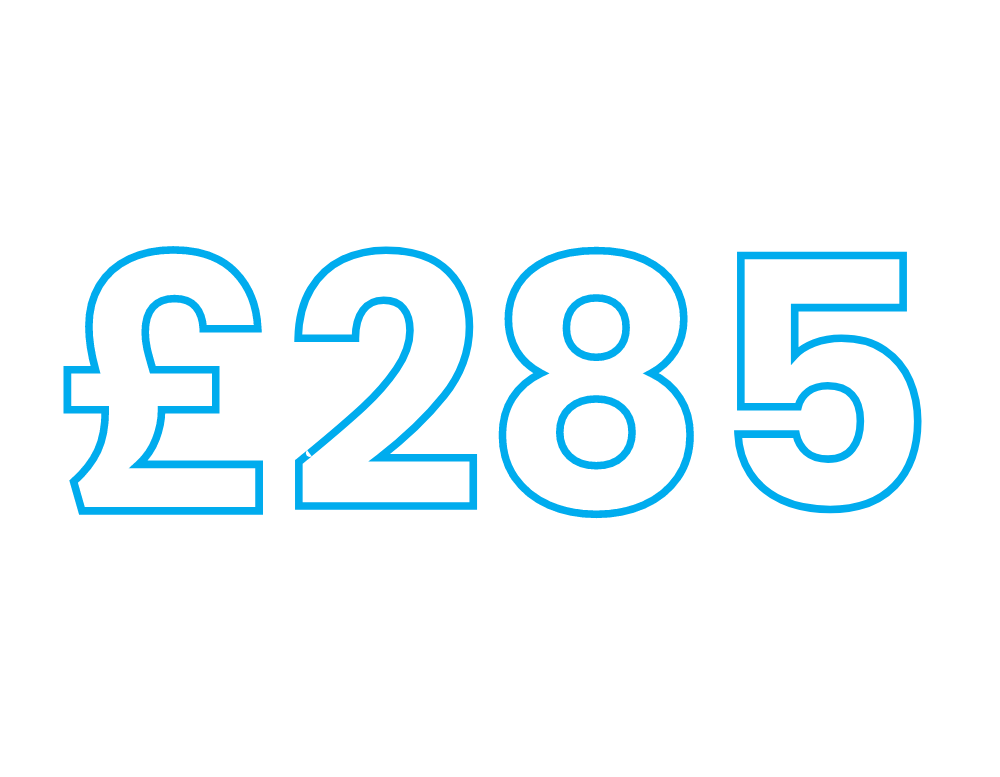VAT Returns
The perfect mix of accounting software, tax experts and dedicated client manager could be just what you are looking for whilst staying compliant with HMRC’s Making Tax Digital rules.


Hassle free
Create your free account. Enter your details and upload your documents. All hassle free.

Fixed fee
Fixed fee of £279. Includes preparing and filing your company tax return. No added fees.

Simple process
It’s a simple online process. Fast, efficient and a team of accountants at hand to help.
What is VAT
Value Added Tax (VAT) is the tax you must pay when buying goods or services. If you are a business, you may be required to register for and collect VAT.
Businesses with a turnover of more than £85,000 (known as VAT registration threshold) must register to pay and add VAT on the products and services they buy and sell and pay this to HMRC when they file their quarterly return.


How does VAT work?
Your company will need to submit VAT returns to HMRC on a monthly, quarterly, or annual basis. The return summarises the VAT collected on sales and the VAT incurred on expenditure during that period.
If the collected figure exceeds the VAT incurred, you pay the difference to HMRC. If the VAT incurred is greater, HMRC will refund the difference.
Is your business ready for making tax digital for VAT?
Making Tax Digital (MTD) is changing how UK businesses do their taxes. It is now mandatory for VAT-registered businesses to keep records and submit their VAT returns digitally.
We will help you file your VAT returns digitally and provide VAT advice and assistance whenever you need it.


Our VAT returns service
We love to plan ahead which means we will get everything ready for submission well before your VAT deadlines. Of course, there is a bit of paperwork involved, but hey, hand it over to us to deal with, that’s what we are here for!
We will also provide the relevant VAT returns reports and any amount that you need to pay.
We will also advise you on EU/EC sales based on your accounts and their position. Handling your finances gives us the knowledge to advise you on related matters so all your decisions help your business boom.
Known as “Annual Accounts” or “Year-end Accounts,” all UK limited companies are required to submit Statutory Accounts to Companies House within nine months of their fiscal year’s end. The accounts of small businesses, on the other hand, are much easier to prepare than those of their larger competitors.
- A balance sheet
- A profit and loss statement
- Notes about the accounts
- A director’s report
- An accountants or auditor’s report
The deadlines for filing your set of annual accounts are within nine months of your Accounting Reference Date after the first year.
Example: Company ABC Ltd. must file its annual accounts from 1 November 2019 to 31 October 2020 no later than 31 July 2021.
Profit & Loss (P&L) shows the performance over the company’s financial year. It would typically show a summary of income received and the types of expenses incurred. But, of course, every business is unique.
Most companies will also file a Company Tax Return with HMRC every year to disclose their earnings, losses, loans, and other circumstances affecting their tax due.
A retail business, for example, with multiple stores, may want to see income & expenses split by each store. In contrast, a construction business may want to see the profitability of each project it undertakes.
P&L produced for management should therefore be tailor-made, keeping in mind the nature of business, the level of detail required, the frequency and the layout.
A Balance Sheet shows the financial position of a business at any given point in time.
A Balance sheet should be prepared with notes to help indicate key business ratios, such as liquidity ratios, debtor and inventory days etc., which can highlight risk areas, so you are in a much better position to plan any cash flow needs.
Notes to the accounts shed light on crucial information that would be useful to any stakeholder of the business. Typical examples of these would include things like;
Breakdown of Fixed Assets to show amounts purchased, sold and depreciated
Related Party Transaction during the year
Detail of some of its creditor or debtors e.g. money owed broken between the bank, taxman or a director
The Companies Act 2006 requires all larger companies to produce a Director’s Report in their Annual accounts to improve corporate transparency. It talks about the business’s principal activities, any significant events incurred during the year and its business impact.
The report is an opportunity to provide greater detail about how the business has performed during the year any regulation impacts or changes in the economic outlook. It may also mention dividends the business intends to pay.

Different types of statutory accounts
Criteria for small companies
If your company meets two of the following conditions, it is considered as a small business:
- You have a turnover less than £10.2 million
- You have up to £5.1 million on your balance sheet
- You have less than 50 employees
As a small business, you can send Companies House abridged financial statements. In addition, a director’s report, a profit and loss account, and the option to audit or not are also available to small businesses.


Criteria for Micro-Entities
If your company meets two or more of the following conditions, you are defined as a micro-entity:
- You have a turnover lower than £632,000
- Your balance sheet shows a maximum of £316,000 or less
- You have 10 employees or less
Being a micro-entity means you do not need to prepare complex accounts, and you can send more straightforward balance sheets to Companies House instead. The same exemptions offered to small companies are also given to micro-entities.
Get started with Accounts Geek
We don’t just prepare your year-end statutory accounts, we take time to understand your business, identify opportunities to save tax, help you understand your financial performance and position of the business and much more…
